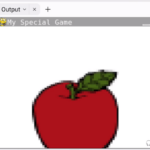Python holds an important position in the realm of programming, often being the first language new coders learn thanks to its simplicity and readability. However, the journey of mastery is extensive – today, we dive into one particular Python concept that will help you level up your coding expertise: effective iteration.
Table of contents
So, What is Iteration?
Iteration in Python, and programming in general, refers to the repetition of a sequence of instructions. In simple terms, when you need a task repeated, you employ an iteration method. A familiar example might be a ‘game over’ loop in a game, where the game resets and starts again each time a player loses.
Iteration is a fundamental concept in Python and computer programming as a whole. The utilization of loops can lead to a simpler, cleaner code that’s easier to read and maintain. But more interestingly, it’s like having an army of workers at your command, able to perform repetitive tasks quickly and efficiently.
Understanding iteration will not only enhance your Python programming skills, but also your overall programming know-how, as the concept of iteration is not exclusive to Python. Additionally, having effective iteration techniques at your disposal heightens your efficiency and productivity as a coder. The time you save from automating repetitive tasks can be better spent on more rewarding, creative aspects of your projects.
Types of Iteration in Python
Python has two primary types of loops: for and while loops.
Python for loop
The for loop in Python is used to iterate over a sequence (list, tuple, string, or other iterable objects). Here’s an example:
for i in range(5):
print(i)This will output:
0 1 2 3 4
Python while loop
A while loop in Python is used to repeatedly execute a block of code as long as the given boolean condition remains true.
i = 5
while i > 0:
print(i)
i -= 1This will output:
5 4 3 2 1
Exploring Python Iterators
Python iterator objects are required to support two methods while following the iterator protocol.
Method __iter__
This returns the iterator object itself.
iter_obj = iter("Python")
print(next(iter_obj))This will output:
P
Method __next__
This returns the next value from the iterator. If there are no more items to return, it should raise a StopIteration.
iter_obj = iter("Python")
while True:
try:
item = next(iter_obj)
print(item)
except StopIteration:
breakThis will output:
P y t h o n
These examples are the most basic form of iteration in Python. As you grow in your coding proficiency, you’ll find more complex iterations that will make your programs more powerful and efficient.
Advanced Python Iteration Techniques
As your programming expertise grows, you will want to adopt more advanced iteration techniques. Python helps facilitate this growth with various built-in features and functions.
For Loop with Else
A for loop can have an optional else block which executes when the iteration over the sequence of items is done, but not when a break statement is encountered.
for i in range(1, 5):
print(i)
else:
print("The loop is over")Output:
1 2 3 4 The loop is over
Enumerate Function
Python’s enumerate function reduces the visual clutter by providing a cleaner approach when we need to iterate and also count the iterations. It adds a counter to the iterable and returns a tuple.
programming_languages = ["Python", "Java", "C++"]
for i, lang in enumerate(programming_languages):
print(i, lang)Output:
0 Python 1 Java 2 C++
Zip Function
The zip function is used to combine two equal-length collections iteratively. This can be helpful in many practical scenarios, such as making a dictionary.
keys = ['name', 'age', 'job'] values = ['John', 25, 'Developer'] info_dict = dict(zip(keys, values)) print(info_dict)
Output:
{'name': 'John', 'age': 25, 'job': ''}
List Comprehensions
List comprehensions provide a more succinct way to create lists. It is a Pythonic method that combines the creation and iteration of a list in a single line of code.
squares = [i**2 for i in range(5)] print(squares)
Output:
[0, 1, 4, 9, 16]
Generator Expressions
Generators are similar to list comprehensions. However, they don’t allocate memory for the whole list, making them much more efficient for large data sizes.
numbers = (i for i in range(10)) print(numbers)
Output:
Lambda Functions
A lambda function is a small anonymous function that is defined with the keyword lambda.
square = lambda x: x ** 2 print(square(5))
Output:
25
Map Function
The map function is used to apply a function on all items of an iterable object and return a list of results.
numbers = [1, 2, 3, 4, 5] squares = list(map(lambda x: x ** 2, numbers)) print(squares)
Output:
[1, 4, 9, 16, 25]
By exploring these techniques, your Python iteration skills will surely escalate to new heights.
With Zenva, we strive to equip you with the skillsets you need to excel in your programming journey. From the basics to the most advanced, we are here to support you in unleashing your full coding potential.
Where to go Next?
With this newfound knowledge of Python iteration methods under your belt, you must be excited and eager to continue your learning journey. There are so many more wonderful topics and advance applications to explore!
One route you may consider is our Python Mini-Degree. It’s a comprehensive collection of Python courses designed to take you from zero to hero. This program includes Python coding, object-oriented programming, game development, and app development. It’s project-oriented, which means by the end, you’ll have a portfolio of your own games, algorithms, and real-world apps to show off.
Python is a powerful language known for its simplicity, versatility, and high demand in the job market, especially in data science. Join our community of over 1 million learners and developers who have used their skills to publish games, land jobs, and start their own businesses.
And remember – your learning does not stop here. Check out our collection of Python courses to ensure you keep evolving in your journey with Python. The more you learn, the closer you get to becoming a Python expert.
Embark on your Python learning journey with Zenva – where your coding aspirations become achievements.
Conclusion
Python iteration is a powerful concept that lies at the heart of efficiently automating tasks and streamlining your code. Mastering this concept doesn’t just make you a better Python programmer, but enhances your overall coding proficiency, allowing you to write cleaner, more efficient, and professional-grade code.
At Zenva, we understand the importance of learning practical, industry-relevant skills. Our comprehensive and project-based courses, like the Python Mini-Degree, are designed to support you in mastering key programming concepts, and using them to build real projects. Journey with us and let’s demystify Python iteration together, elevating your coding skills to new heights.
Did you come across any errors in this tutorial? Please let us know by completing this form and we’ll look into it!

FINAL DAYS: Unlock coding courses in Unity, Godot, Unreal, Python and more.







